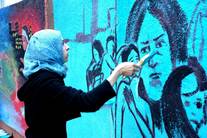
www.unimondo.org/Notizie/EU-honours-Congolese-gynaecologist-Denis-Mukwege-who-helped-thousands-of-women-148397
EU honours Congolese gynaecologist Denis Mukwege who helped thousands of women
Notizie
Stampa
Denis Mukwege is mostly known for having treated thousands of women who were victims of gang rape during the war in the Democratic Republic of Congo (DRC) . The Congolese gynaecologist founded the Panzi hospital in Bukavu, renowned for its treatment of the survivors of sexual violence, many of whom suffered from severe gynaecological conditions.
For his effortless work for women, Mr Mukwege has been awarded the European Parliament's 2014 Sakharov prize, which will be officially presented at a plenary session in Strasbourg on 26 November. The award, created to honour defenders of human rights and the freedom of thought, counts among its laureates Nelson Mandela, Aung San Suu Ky and Malala.
Dr. Mukwege is estimated to have treated around 21 000, mainly during the conflict in the DRC (1998-2003), when rape was regularly used as a weapon of war. In an interview with the BBC in 2013, Mukwege explained that the rape victims he treated often came from the same village. “These weren't just violent acts of war, but part of a strategy” said Mukwege. “You had situations where multiple people were raped at the same time, publicly - a whole village might be raped during the night. In doing this, they hurt not just the victims but the whole community, which they force to watch.” As the doctor explained, the result of this inhumane strategy is that people are forced to flee their village and abandon everything they have and care for.
Mukwege's interest for medicine started when as a child he accompanied his father, a Pentecostal Pastor, on visits to parishioners – some of whom were sick. Whereas on those occasions he could only assist them with prayers, these visits sparked his aspiration to be able to offer medical assistance as well. Mukwege studied medicine in Burundi, and went on to work at the Christian hospital of Lemera in South-Kivu, DR Congo. There he was shocked to observe the dangers of childbirth for women in rural communities; this inspired him to study gynaecology/obstetrics in Angers, France.
In 1989, Dr. Mukwege settled at the Hospital of Lemera where he started a gynaecology/obstetrics practice. This service became known inside and outside the area. However, in 1996 the hospital was completely destroyed by the civil war that had broken out in Congo. Once he moved to Bukavu, Dr. Mukwege built a maternity ward with an operating room at Panzi. With an increasing number of women falling victim to sexual violence, he created specialized services to aid these rape victims.
In 2012, after an attempt was made on his life, Mukwege left his country to find refuge in Europe. But he returned to Bukavu only a year after, following strong shows of solidarity from the patients he had treated, who even raised the money to pay for his ticket home.
Nowadays, despite the official end of the civil war, gang rapes have decreased in number but are still an ever-present threat. The hospital still receives on average 10 women per day, 30% of whom need to undergo major surgery. Dr. Mukwege is working on training new generations of nurses, obstetricians and doctors to perform these duties.
Questa pubblicazione è stata prodotta con il contributo dell'Unione Europea, nel quadro dei programmi di comunicazione del Parlamento Europeo. La responsabilità sui contenuti di questa pubblicazione è di Unimondo.org e non riflette in alcun modo l'opinione dell'Unione Europea. Vedi la pagina del progetto BeEU - 8 Media outlets for 1 Parliament










